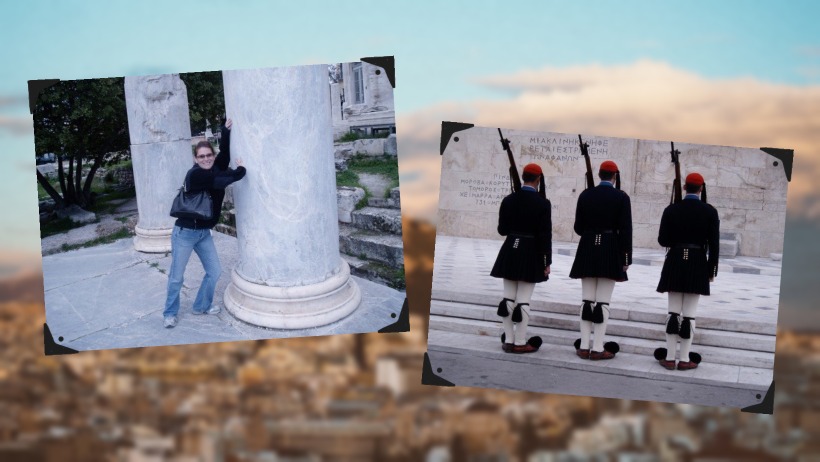When I was in Israel for my year of rabbinical study in Jerusalem, I took our very long break over Hanukkah to head over to Greece with a friend. Our plan was simple: drink ouzo, eat amazing Greek food, and check out every cultural experience we could. On one of our days wandering in Athens, we wound up watching the changing of the guard at a palace. It was incredible to witness. They were so precise in their movements; they knew exactly what to do, where to go, and how to behave. What we did notice, however, was that at each shift change (yes, we went back multiple times to watch) the new guards chose a slightly different place to stand. The change was small, but noticeable to us. Change is inevitable, even when we’re rigid and following a strict pattern or set of rules.

I’m not creative with a needle and thread, but in my one sewing adventure, I remember thinking I followed the same pattern to cut two equal pieces of fabric, only to find out I’m either bad at tracing or bad at cutting. The pieces were just ever so slightly different, but enough to not match. The same thing can happen with recipes. Use the same base, but change one ingredient or use fresh herbs instead of dried, and it completely changes the dish.
This is true with our Judaism. We base our traditions on the same book, the Torah, and yet how we observe today would be unrecognizable to the Israelites who were the first to inherit these traditions from God. We even see hints of these changes start to happen in our Torah portion this week. This week we read Parshat Chukat, which is full of plot twists and new experiences for the Israelites. The lands of Sichon and Og are conquered, both Miriam and Aaron die, and we learn that Moshe will not be allowed to enter into the land of Israel. In the middle of these major developments, we are also given a purification process that seems somewhat out of place in the context of the significant events that follow it.
For some, the weight of this parshah is that it carries with it the deaths of Aaron and Miriam and the mention of Moshe’s death as well. As heavy and full of grief as these moments are, we’re also watching the changing of the guard of the leadership of Israel. What the narrative marks is the moment when the Israelites who are in the desert have less of a collective memory of what it was like in Egypt and more memory of standing at Sinai. And soon, as the Israelites move into the promised land, the generation that stood at Sinai will be dwindling, and that too will be a memory.
There’s great purpose in this distinction. It reminds us that since the beginning of life, we are always learning, growing, and building on the memories and lessons of those who came before us and transmitting them to the next generation as they take on the mantle of leadership. The lesson in Parshat Chukat forces the Israelites to see that no leader, no person lives forever, and that’s not a bad thing. It pushes Moshe to train Joshua and opens the hearts and eyes of the people to seeing Joshua as the leader.
A changing of the guard is significant, whether temporary or permanent. Even with text as old as Torah, we learn that change is built into everything we do. It’s up to us to prepare to pass it on.



